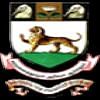MSc Physiology Syllabus and Subjects

M.Sc Physiology syllabus can differ for the students based on the specialization that the students decide to pursue. M.Sc Physiology subjects are covered across four semesters. The Master of Science in Physiology subjects are designed to give the students a deeper understanding of the course and specialization they choose to pursue.
Semester Wise M.Sc Physiology Syllabus
The M.Sc Physiology subjects list differs according to the specialization that the student decides to pursue. The M.Sc Physiology 1st-year syllabus primarily focuses on the foundational subjects related to the field of humanities and social sciences.
Due to this reason, the syllabus of M.Sc Physiology first-year does not change that much. The M.Sc Physiology course introduces students to all the vital information they need.
Listed below is the syllabus of M.Sc Physiology according to the semester which is a core subject and therefore, tends to be the same across the board.
M.Sc Physiology First Year Syllabus
The table below shows the list of subjects in M.Sc Physiology for the first year:
| Semester I | Semester II |
| Orientation To The Department | Physiology: Theory |
| Choosing The Subject Of Thesis And Guide | Physiology: Practical |
| Writing The Protocol | Thesis Work |
| Recapitulation Of Undergraduate Physiology Through Attending Ug Lectures | Recapitulation Of Undergraduate Physiology Through Attending Ug Lectures |
M.Sc Physiology Second Year Syllabus
The table below contains the list of subjects in M.Sc Physiology for the second year:
| Semester II | Semester IV |
| Physiology (Theory) | Physiology (Theory) |
| Physiology (Practical) | Physiology (Practical) |
| Thesis Work | Submission Of Thesis |
M.Sc Physiology Subjects
M.Sc Physiology subjects are dependent on the specialization that the students decide to pursue. M.Sc Physiology subjects are decided based on the core topics in human functioning, as well as the topics in the specialization.
M.Sc Physiology Core Subjects
The core M.Sc Physiology subjects list contains important subjects that all M.Sc Physiology students study irrespective of their specialization, which is as follows:
- Biochemistry.
- Biophysical And Biochemical Principles.
- Blood And Body Fluids.
- Cardiovascular System.
- Clinical Biochemistry.
M.Sc Physiology Course Structure
The M.Sc Physiology course structure consists of core subjects. The course is a two-year-long postgraduate course, divided into four semesters. The course structure is:
- IV Semesters
- Core Subjects
- Postgraduate Course
- Research Project
- Practical Project
M.Sc Physiology Teaching Methodology and Techniques
M.Sc Physiology teaching methodology and techniques encompass traditional lecture-based training. The traditional classroom teaching methods allow the students to ask the questions they might have and get answers to them.
The course has teaching methodologies and techniques designed to ensure that the students pursuing this course have access to all the infrastructure and many other facilities available. Listed below are the teaching methodology and strategies in general:
- Lectures
- Practical Sessions
- Research Papers
- Seminars
- Group Discussions
- Traditional Classroom-Based Teaching
M.Sc Physiology Course Projects
When pursuing a Master of Science in Physiology course, research and practical projects are an integral part of the studies. These projects are assessed by the professors to judge the student's understanding of the subjects.
Students can choose their project topics based on the specialization they choose to pursue. Some of the popular research projects are listed below:
- Cardiovascular System
- Biophysical And Biochemical Principles
- Endocrine System
- Environmental Physiology
M.Sc Physiology Course Books
When pursuing an M.Sc Physiology, books can be a great investment for the students as they can really help them learn about their specialization in great detail. Books can be a source of information for the students whereby they can further learn about topics of their interest. Students can rent out the reference books from libraries, download them online or purchase them.
Listed below are some of the popular M.Sc Physiology course books that the students can invest in:
| Name of Book | Author |
| Animal Physiology | B.S. Tyagi |
| Review Of Physiology | Soumen Manna |
| Biochemistry With Clinical Correlations | Thomas M. Devlin |
| Experimental Animal Physiology And Biochemistry | S.C. Nigam |
| Concise Human Body Book | Steve Park |
























